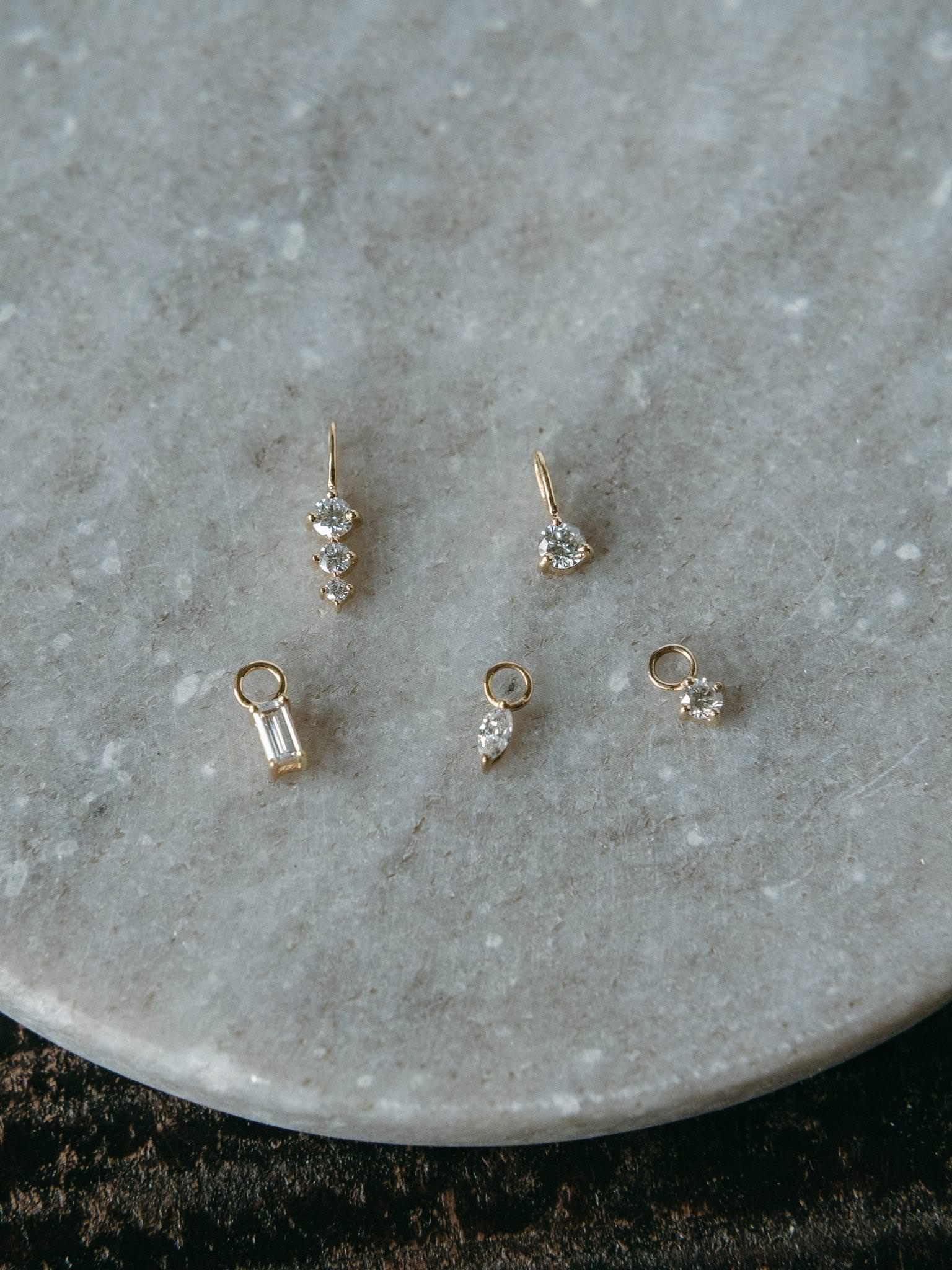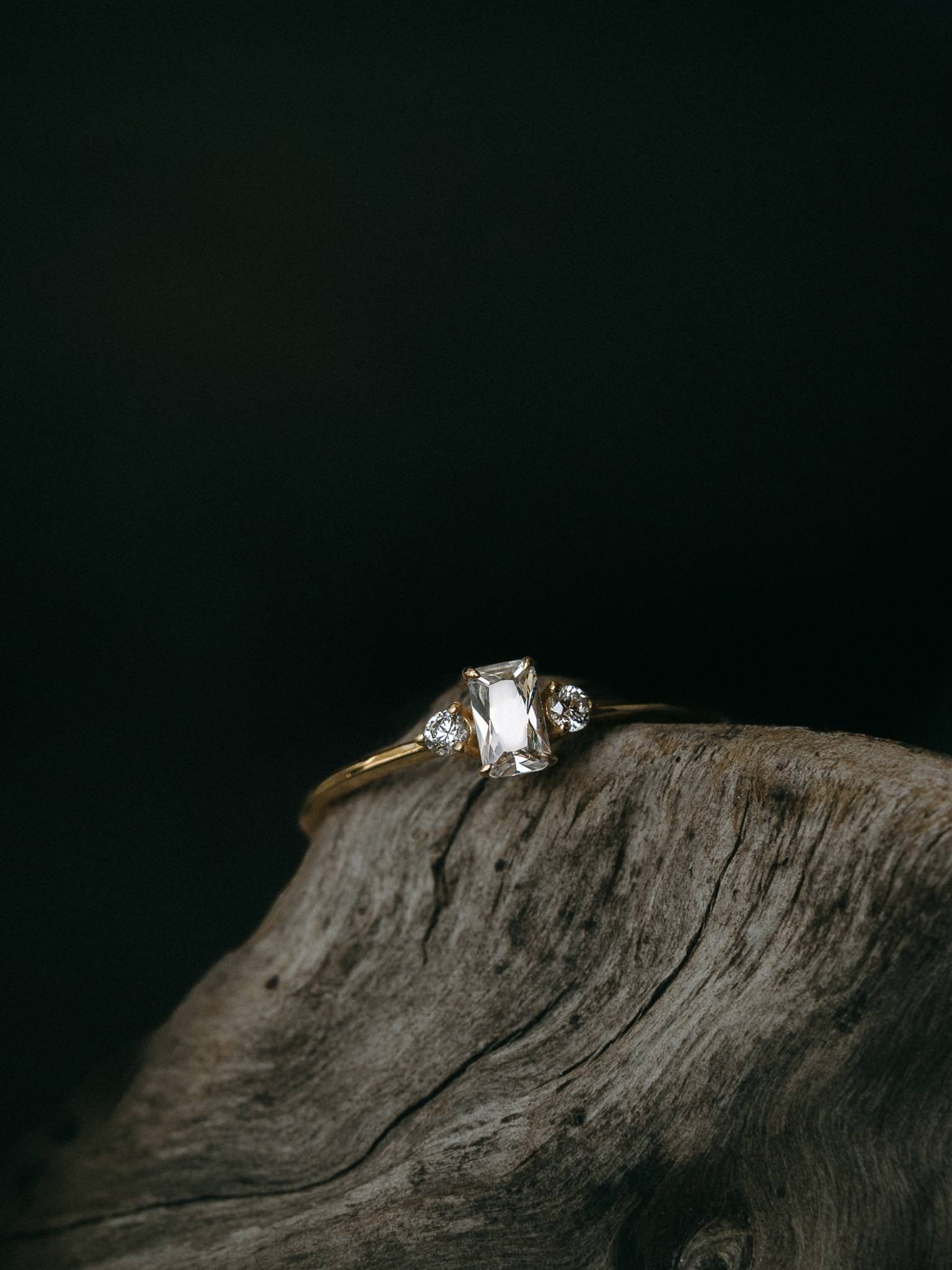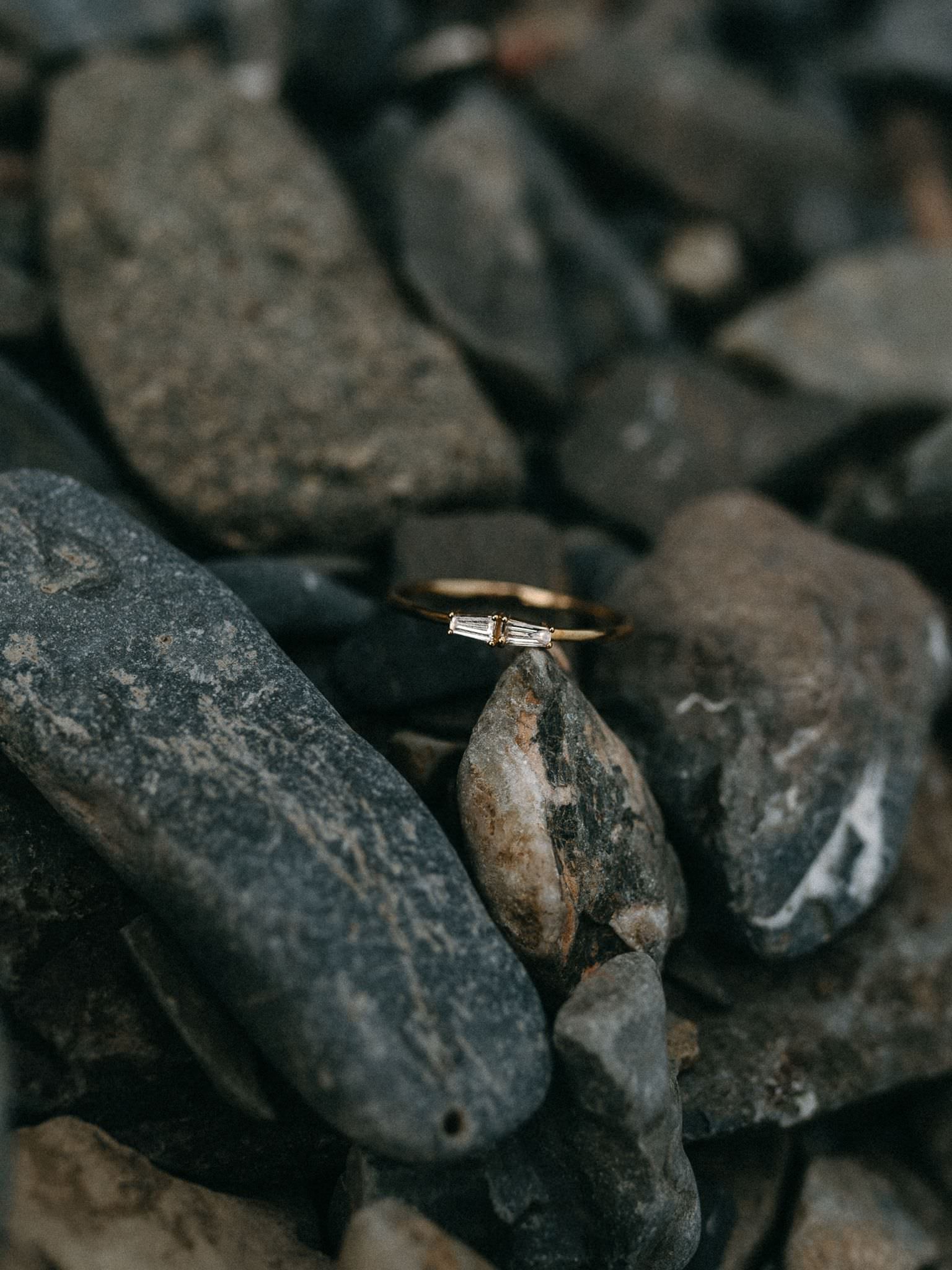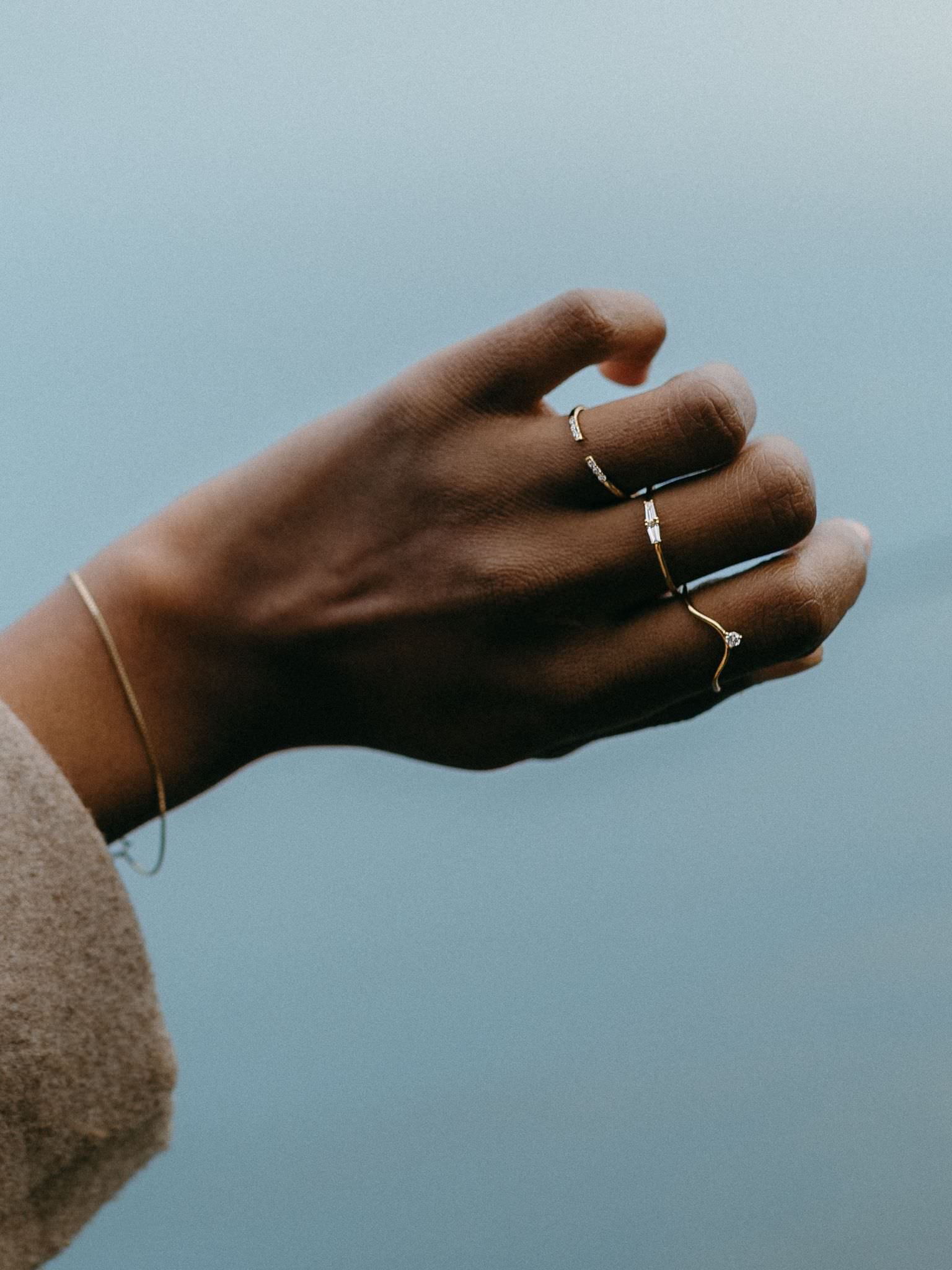
Recycled gold and Fairmined / Fairtrade gold both have pros and cons that need to be balanced. In trying to do so, we decided to adopt a balanced approach where we use mostly fairly mined gold and supplementing the rest of our supply needs with recycled gold — an ethical gold sourcing mix.
While this is the best solution we’ve come up with for now, we recognise that the path to sustainability and ethicality is one that requires constant adjustments and improvement. It is our commitment to you that, as we learn and discover new or better ways to achieve this vision, our practices will evolve accordingly.
Benefits of using Recycled gold
Gold is incredibly durable and can be recycled repeatedly without losing its quality. So gold that’s been refined and recycled multiple times is just as good as freshly mined gold.

High-value recycled gold makes up 90% of the global supply of recycled gold. This consists primarily of coins, gold bars, and jewelry. The remaining 10% is made up of industrially recycled gold.This is mostly made up of gold that is recovered from waste electrical and electronic equipment (WEEE), which includes laptops, cell phones, and other similar devices.
Creating jewellery from recycled gold is no doubt an eco-friendly choice, as it has a much lower environmental impact than gold mining. Compared to mining, recycling gold uses a lot less energy and water. Recycling procedures usually involve fewer hazardous chemicals and are linked to fewer emissions overall.
This is unarguably the largest advantage of recycled gold over mined gold.
Why not use recycled gold exclusively then? Wouldn’t that reduce the need for mining?
Gold is inherently valuable, as it is a tangible asset and store of value. It is more than just a material for making jewelry. This is why the demand for gold will always be high and will likely never diminish to the point where mining ceases. People will always be motivated to mine gold, no matter how much recycled gold is used, because gold is not mined for any particular industry; it is extracted primarily to generate wealth.
Furthermore, the practice of recycling gold is not new. The World Gold Council reports that 33% of the annual supply of gold is, on average, recycled gold. People will always recycle gold because of its economic worth.
Recycled gold on its own cannot cover the global jewelry demand for gold, and this is where fair mined and fair trade gold comes in (more on that in a bit).
But first, how do you ensure that the recycled gold you purchase is not from illegal sources?

One of the arguments against recycled gold is that some of it is made up of dirty mined gold, which is connected to a host of issues such as crime, corruption, money laundering, human rights violations, and environmental degradation.
At Foss & Harper, the companies we work with are either RJC-certified or part of the United Nations Global Compact. The refineries from which we source the gold we use for your Foss & Harper pieces follow the CoC Chain of Custody Standard. The CoC Chain of Custody guarantees full traceability and responsible procurement. There are numerous stringent regulations and procedures put in place to avoid supplies from illegitimate sources ending up labelled as Recycled Gold.
What is the greenwashing of recycled gold?

Jewelry brands claiming that they use 100% recycled gold because it is ethical and reduces the need for gold mining is simply greenwashing and smart marketing.
Using 100% recycled gold is not the problem here. The issue is that by perpetuating the misconception that recycled gold is ethical and sustainable, jewelry brands can claim to be part of the sustainable and ethical jewelry movement without actually doing much to improve their sustainability practices.
Furthermore, recycled gold does not necessarily mean ‘old gold’. Main industry standards allow gold recovered as a byproduct of manufacturing to be labelled as recycled. Fabrication scraps can sometimes comprise more than 30-50% scrap gold. This means that freshly mined gold (even gold that was unethically mined) can very quickly be re-introduced as 100% ethical, recycled gold.

Recycled gold is eco-friendly, but it is not ethical and doesn’t reduce the need for mining. It doesn't ensure fair wages or ethical mining practices, nor does it contribute to progress and development in a sector that is here to stay and requires consumers to hold them to a higher standard.
Since we are sadly not able to put a stop to gold mining, it is all the more crucial to push initiatives to encourage positive change and reduce negative impacts in the mining industry.
Why should we support Fairtrade gold?

In terms of ethicality, fairly mined gold is a much better choice than recycled gold.
By supporting fair-mined gold, we are actually ensuring that miners are paid fairly and work in safe conditions, thereby contributing to a more sustainable and ethical industry.
Environmental Benefits of Fairtrade Gold
Fairtrade-, Fairmined-, and CoC-certified gold mines adhere to extremely strict standards to combat the negative impacts of gold mining on the environment.
For example, there are rigorous rules that need to be followed to protect local ecosystems, forests, and water bodies from the chemicals that are used to extract gold. Miners are taught responsible waste disposal and how to efficiently use water and energy. Funds are allocated to invest in new mining technology and equipment, which reduces the need for toxic chemicals (e.g., mercury-free gold mining). Furthermore, after the closure of these fairtrade mines, local ecosystems and landscapes are restored so that local biodiversity can thrive once again.
Humanitarian Benefits of Fairtrade Gold
Artisanal and small-scale gold mining (ASGM) plays an important role in many communities (especially in developing nations) because it offers a source of income in areas with otherwise limited job opportunities. According to the United Nations Environment Programme (UNEP), it is estimated that around 10 to 15 million people worldwide rely on this sector for their livelihoods, 4 to 5 million of whom are women and children.
If we want to put a stop to unethical mining practices like human rights violations, the use of child labour, gender inequality, unfair and unsafe working conditions, etc., it is crucial for us to help as many mines as possible achieve CoC, Fairtrade, or Fairmined certification.
In mines that follow fairtrade standards, strict policies are put into place to uphold human rights, women's rights, and the abolishment of child labour. Miners work in safe and ethical working conditions and are taught how to protect their health from the toxic chemicals they work with. They are paid fairly for their work, and their income supports their families and local communities, giving them access to education and healthcare.
How you can make a positive impact
Fairly mined gold is 10–20% more expensive than recycled gold and uncertified earth-mined gold. However, this premium significantly improves the lives of small-scale miners and their communities, and it also helps the mining industry move towards more ethical and responsible practices.
When you support fair-mined gold, it allows you to use your economic power to make a real difference. That there is a direct emotional connection between your jewelry and the mining communities makes it all the more meaningful.




















